No comfort in the zone
It must have been in 2006 or 2007 when I met a very nice lady from Ukraine. We hit it of immediately and not long after we met, we were having dinner at my place. After so many years, I can no longer remember what the dinner was, but I do recall that afterwards we sat down and talked about all kinds of things. From nature to health and illness to behavioural science and psychology, to politics and everything in between.
I had a couple of newspapers lying around and while I was having a toilet-break, she had picked one up that contained an article about one of the then rising stars in Dutch politics. Coming back from the toilet, I could immediately see that she had gotten agitated. I asked what was wrong and she pointed at the picture of the man. “Do you know that this is a very dangerous man?” Of course, I was fully aware of Geert Wilders’ ideas and how well he knew how to play on people’s fears and prejudice, so I nodded and picked up the cups to get us more coffee.
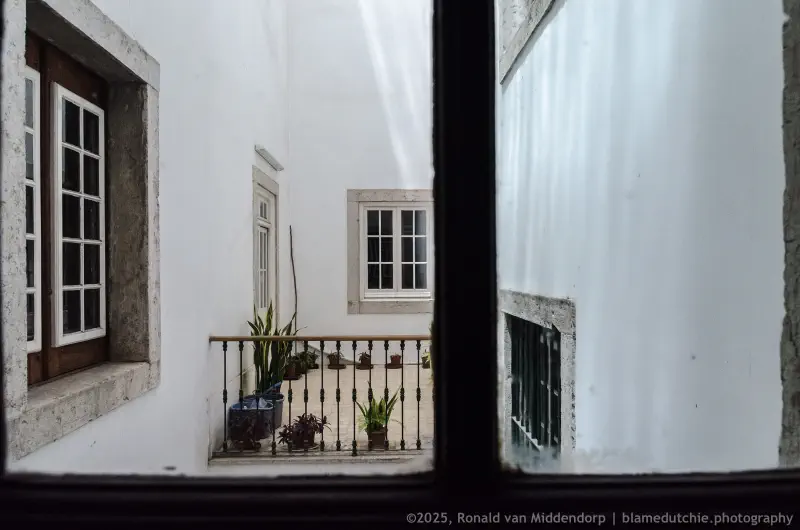
For the next hour or so, she talked about her childhood in Kiev, her studies and the history of the relationship between Russia and Ukraine. The winter was approaching and she was worried that Russia would, once again, use the cold to put pression on Ukraine by raising the price of gas. That would then be followed by the Ukrainian government refusing to go along with that, which in turn would result in Russia shutting down the pipelines. People would die from the cold and eventually the price would come down a little bit, Ukraine would pay and people would hate each other a bit more.
In 2006, Vladimir Putin was in his second presidential term and working hard on consolidating his grip on Russia and its former soviet states, as well as on the weak European nations. In many European countries, governments still seemed to believe that Puting would prove to be a moderate leader. This notion lead my friend laugh angrily: “He is KGB! What are they thinking? Are they stupid? A former liaison officer to the Stasi in Dresden, a spy, a schemer. He led the FSB, please!”
She lit a cigaret and noisily blew out the smoke. “He will attack Ukraine! It will happen, there is no doubt about it. Everybody in Ukraine knows it. He is just making sure he is strong enough and Europe even weaker then it is now.” Then she pointed at the photograph Geert Wilders and said that he and the likes of him would help Putin reach his goal.
That conversation came to mind when I accidentally stumbled upon a working exhibition of Veronika Blyzniuchenko at the Basílica da Estrela in Lisboa.
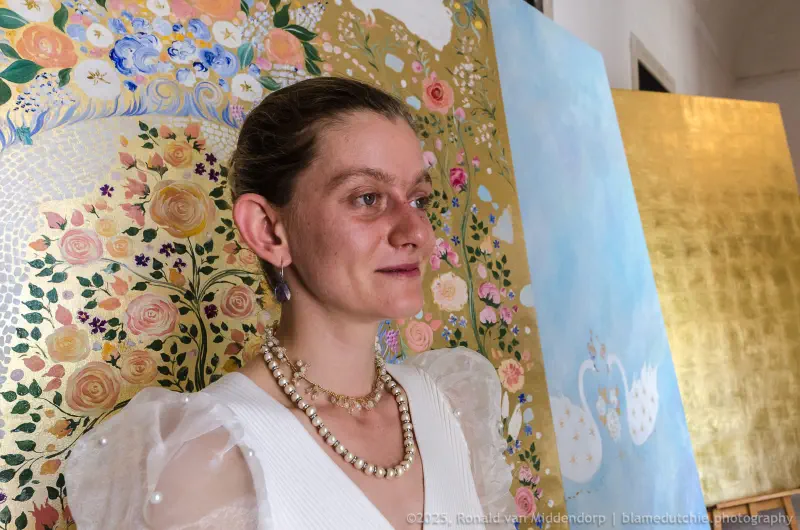
Veronika Blyzniuchenko
I had already walked past the entrance, when my brain caught up with the information on a sign about the exhibition sitting next to the entrance. I stopped walking, turned around and entered. Not being a religious person, with a strong mental allergy for anything that breathes organised religion, I don’t often enter churches, chapels or any other places of prayer. They are also places where art hides, so lately I try to go in more often. I have to admit that religious art gives me the same kind of creeps as religion itself, but the architecture can be interesting and sometimes the statues are so ugly or chilling that I just have to photograph them. Also, the lack of maintenance can make for interesting compositions.
A zone for comfort
While exploring and recognising the relative beauty of the place and its details, I noticed a remarkably dressed woman walking up a stairway and since I had entered with the plan to look around, I decided to see what the upper floor had to offer.
After having returned downstairs, I paid more attention to the art on the wall and to my surprise I saw the same woman standing in front of an easel, working on a painting. A few quick shots later, we had a little conversation about her work. For me, the paintings don’t need a lot of explanation, them being full of symbolism. For example, the black swan can represent many different things. Some cultures believe that it represents innocence and purity while others consider it to be a symbol of good luck and transformation. A symbol of personal power, that can make a difference in the world and help us to rise above any situation. In the realm of alchemy, the black swan is associated with the devil and represents darkness and evil.
After Russia started its war with Ukraine, Veronika moved to Portugal where she lives and works. On her website she explains how she is actively involved in the restoration of the Basílica as well as how people can support.
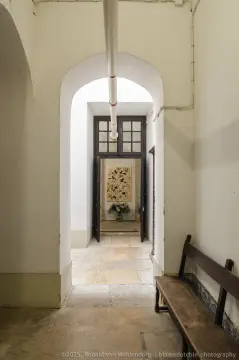
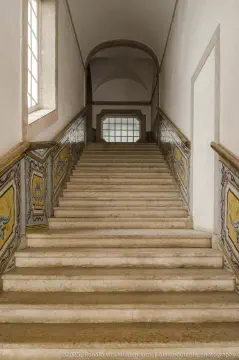
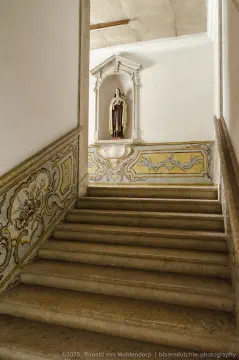
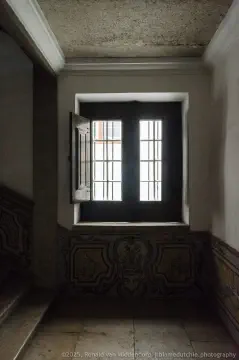
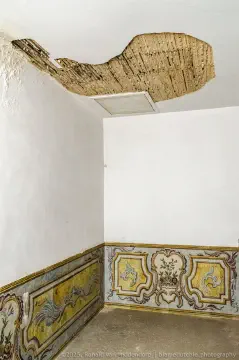
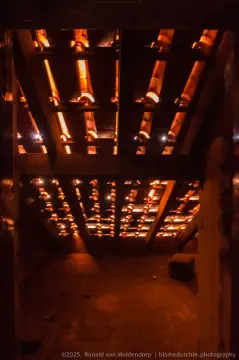
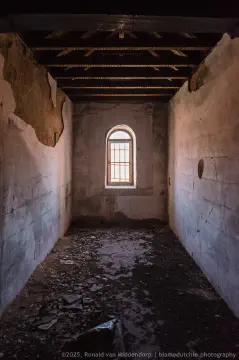
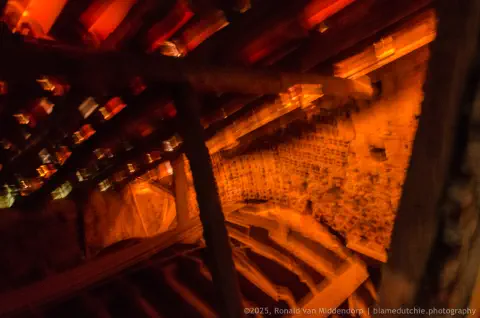
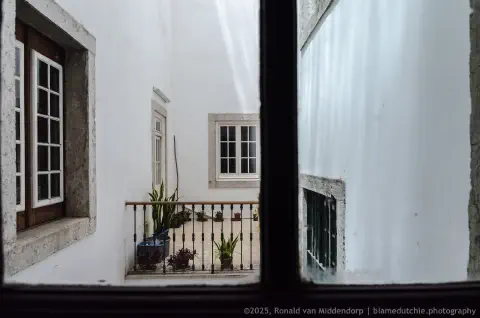
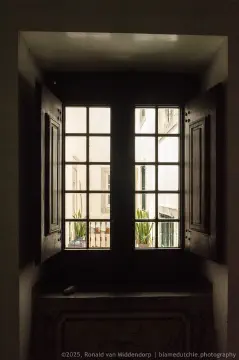
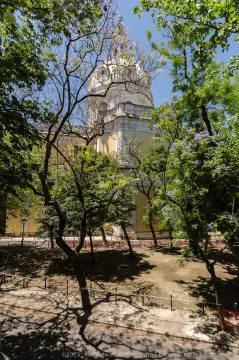
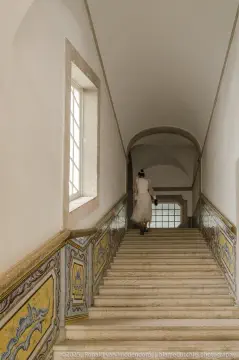
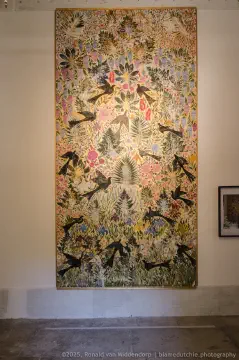
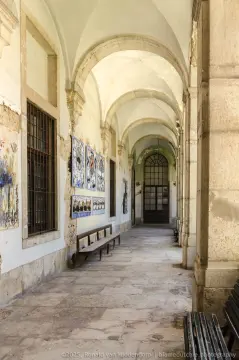
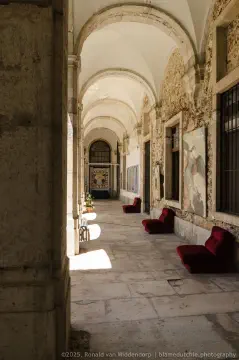
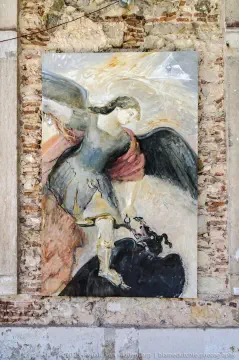
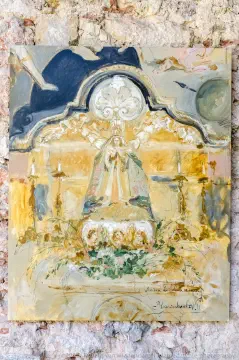
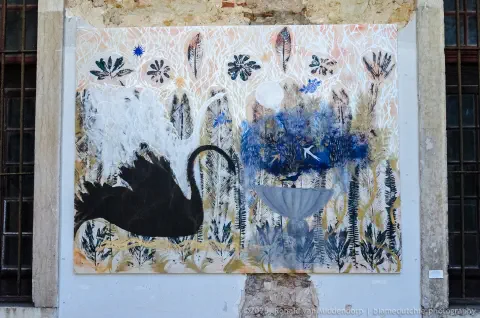
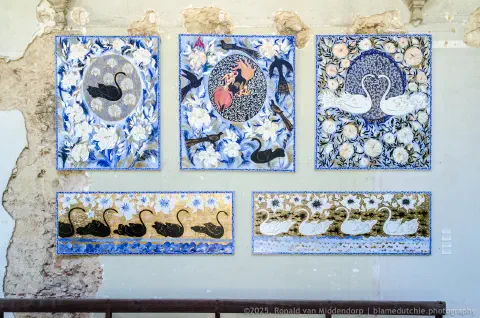
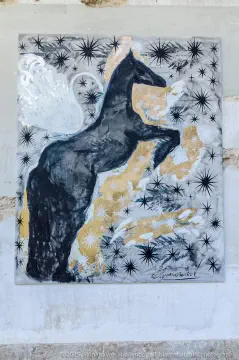
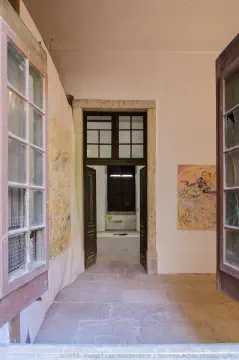
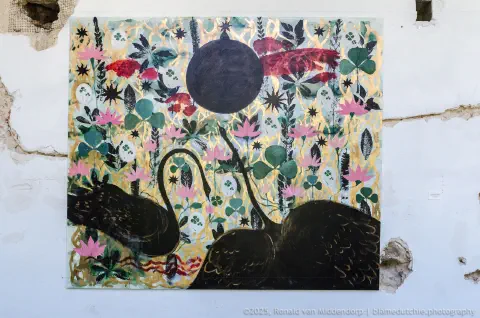
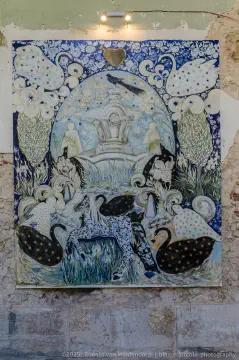
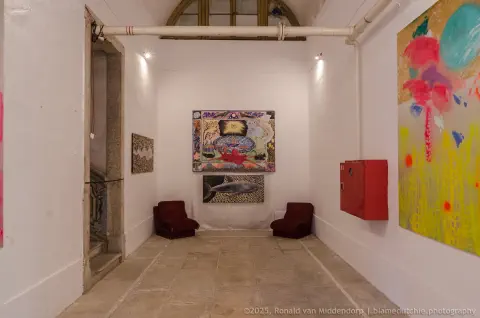
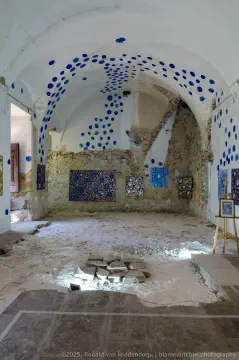
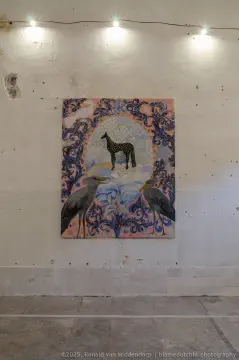
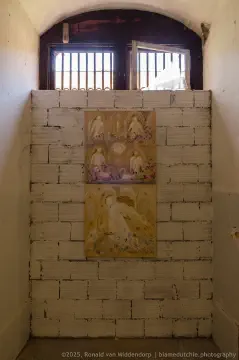
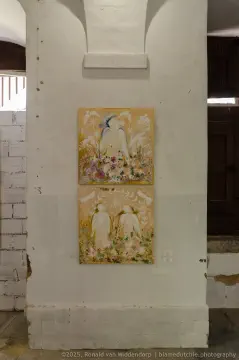
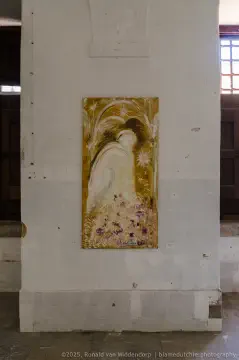
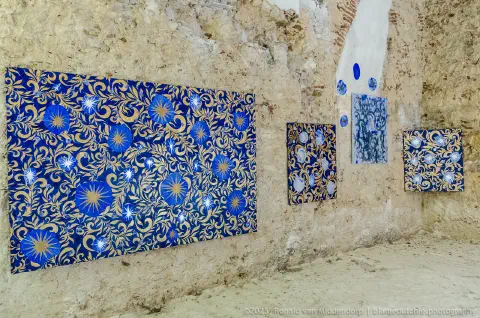
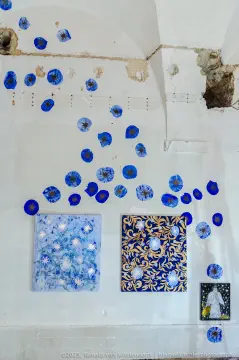
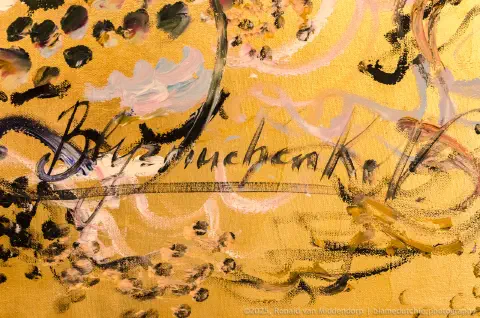
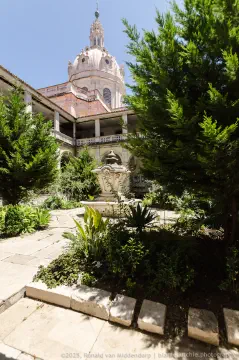
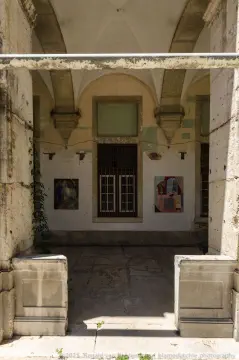
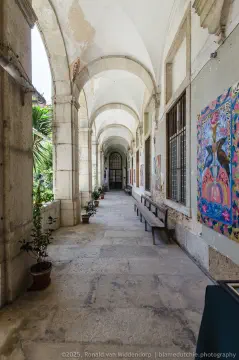
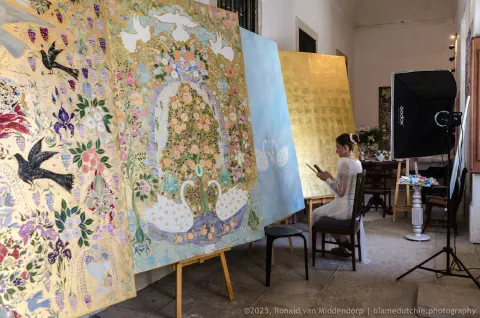
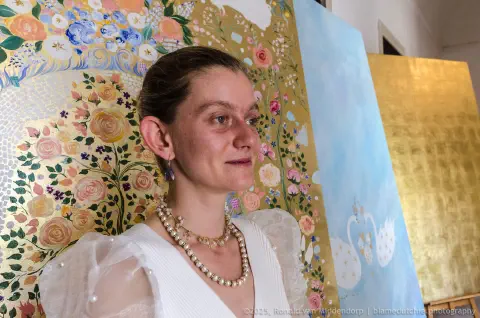
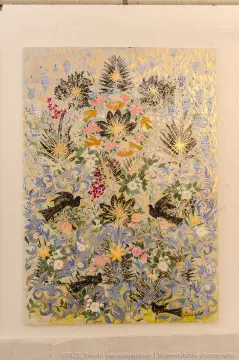
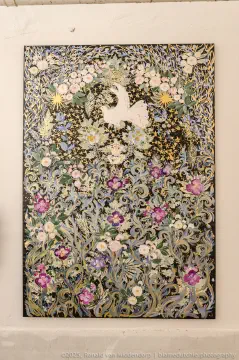
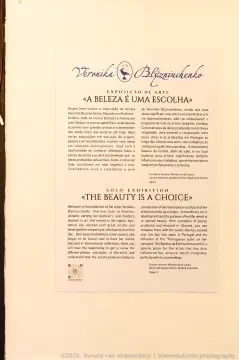
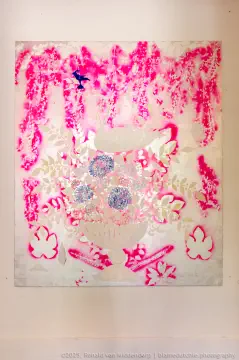
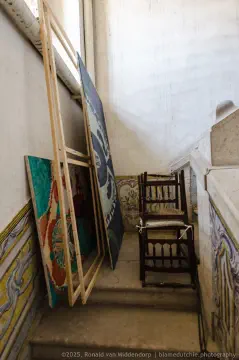
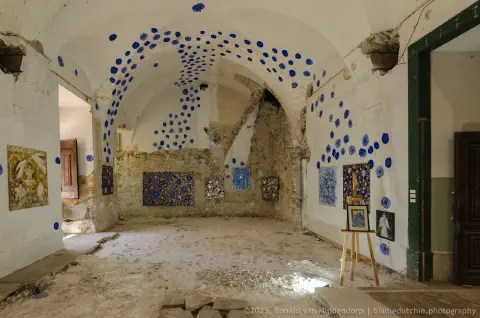
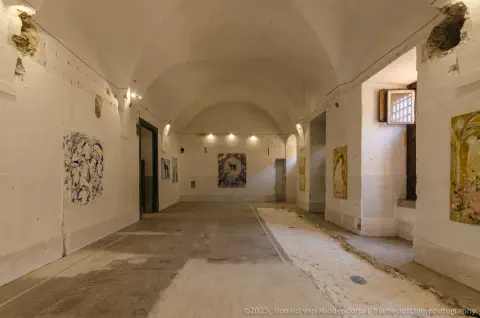
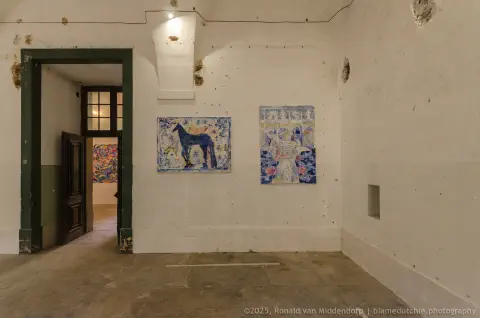
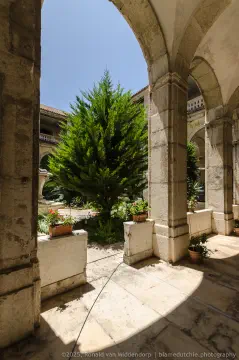
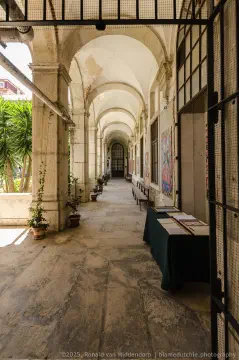
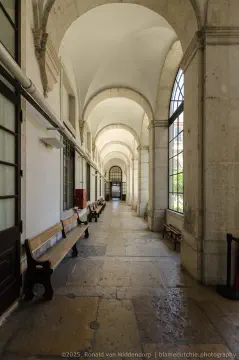
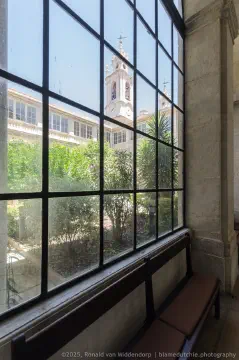
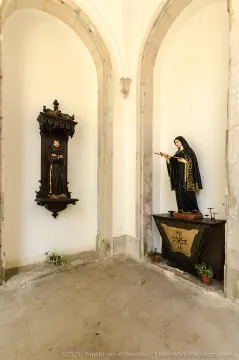
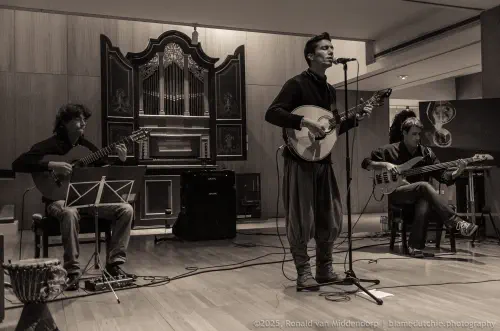
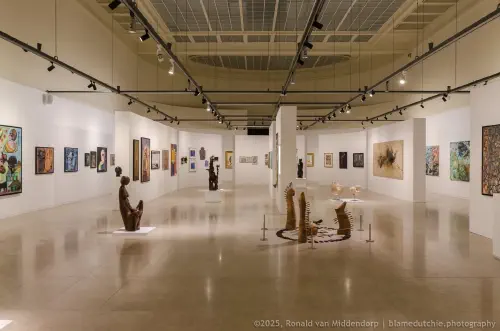
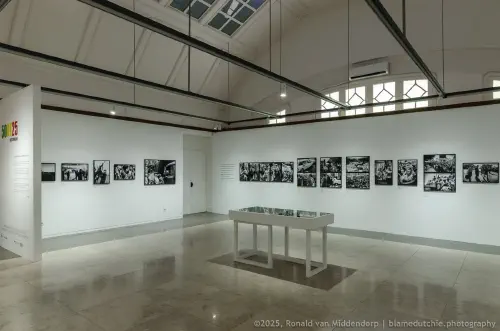
What are your thoughts on this post?
If you liked this post, feel free to use one of the sharing options below. It always makes me smile when I see someone enjoyed it.